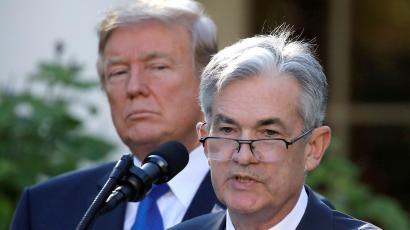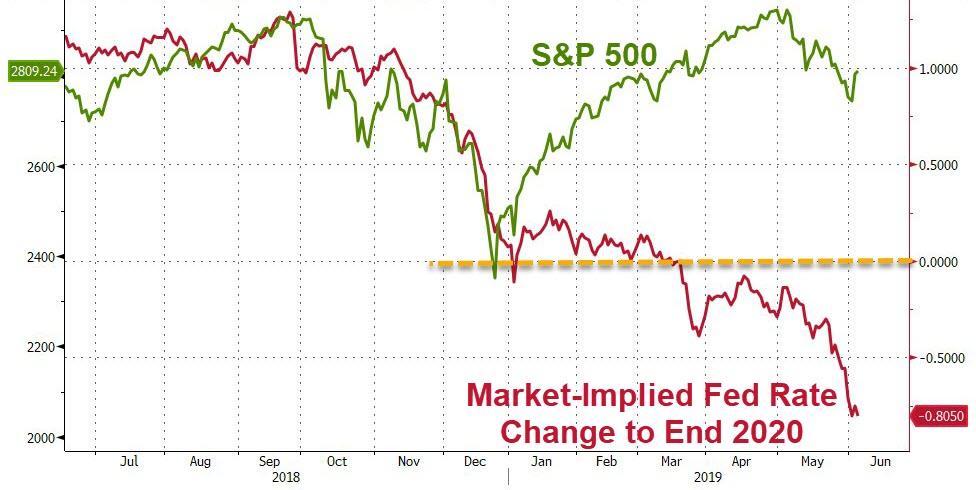For months, President Trump has been pushing The Fed to cut interest rates, lambasting them for raising rates last year “slowing us down.”
Then, at the end of April (in the middle of the latest FOMC meeting), Trump took it one step further, demanding The Fed cut interest rates by 1 percentage point and to implement more money-printing quantitative easing. In a two-part tweet, the president unfavorably compared the Fed to its China counterpart and said if monetary policy in the U.S. was looser, the economy would “go up like a rocket.”
China is adding great stimulus to its economy while at the same time keeping interest rates low. Our Federal Reserve has incessantly lifted interest rates, even though inflation is very low, and instituted a very big dose of quantitative tightening. We have the potential to go…
— Donald J. Trump (@realDonaldTrump) April 30, 2019
….up like a rocket if we did some lowering of rates, like one point, and some quantitative easing. Yes, we are doing very well at 3.2% GDP, but with our wonderfully low inflation, we could be setting major records &, at the same time, make our National Debt start to look small!
— Donald J. Trump (@realDonaldTrump) April 30, 2019
Democrats denounced Mr. Trump’s comments, saying they showed his disregard for the traditional independence of the Fed and his desire to use its powers to help him win re-election.
“There’s no question that President Trump is seeking to undermine the long-term stability of the economy and independence of the Federal Reserve to boost his own re-election prospects,” said Senator Ron Wyden of Oregon, the top Democrat on the Finance Committee.
And many elites piled on, slamming the President’s ‘shocking intereference’.
BUT… things have changed very quickly among the establishment types.
Now we have Fed heads talking about “insurance” rate-cuts, lamenting the inverted yield curve, focusing on slow-flation; and former Treasury Secretary Larry Summers agrees with Trump, demanding a 50bps cut now and more in September.
Amid this massive flip-flop by the establishment, Gluskin Sheff’s David Rosenberg has deciphered a cunning plan emerging among all this global trade war tension and economic collapse:
“Maybe Trump is a genius, after all.
What if he finally gets the steep Fed rate cuts he has been demanding?
After that, he ends the trade wars, tariffs go to zero, and the stock market surges to new highs — just in time for the 2020 election!“
Maybe Trump is a genius, after all. What if he finally gets the steep Fed rate cuts he has been demanding? After that, he ends the trade wars, tariffs go to zero, and the stock market surges to new highs — just in time for the 2020 election!
— David Rosenberg (@EconguyRosie) June 5, 2019
Rosie’s right – the market is now demanding over 3 rate-cuts by the end of 2020 (and just less than two by the end of 2019), keeping the equity market dream alive…
Or will any rate-cut be the ‘sell the news’ event confirming The Fed must be worried about something? Trump’s 2020 run depends on it.
via ZeroHedge News http://bit.ly/2WqNdge Tyler Durden



